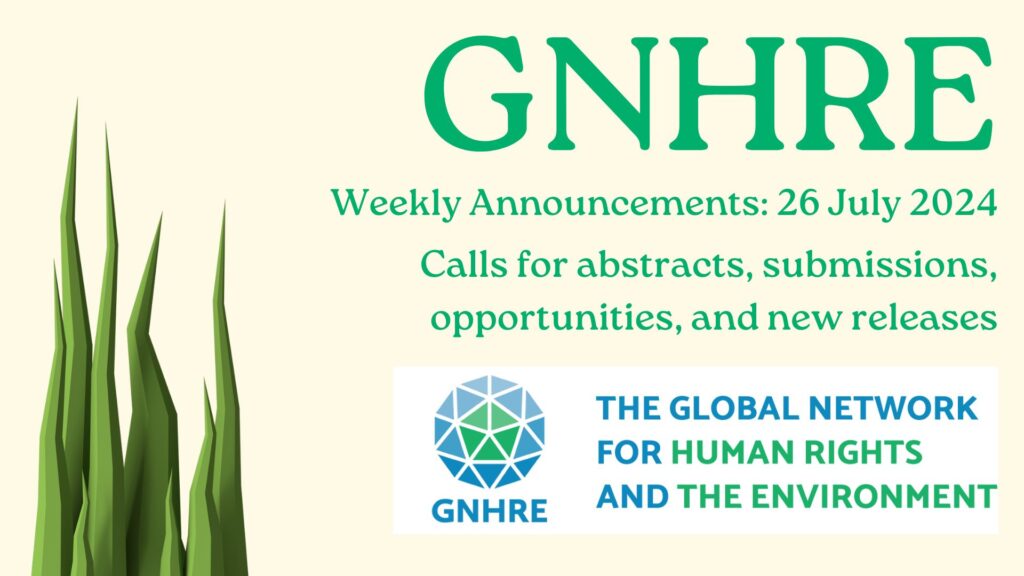a Network for the Creation of Change
The Global Network for Human Rights and the Environment is a community of scholars, activists, practitioners, defenders, researchers, and policy-makers working at the intersection of human rights and the environment. The GNHRE is a space for collaboration, learning, and resistant reimagining. We produce, exchange and learn from world-leading scholarship and insights drawn from community-embedded experience and practice all over the world.
Learn more

Projects
The GNHRE runs a number of collaborative projects, led by our members. Projects range from research-focused initiatives that spark meaningful conversations around a myriad of issues to advocacy efforts intended to provide support and foster knowledge exchange on a global scale.
GNHRE projects also partner with like-minded organizations and institutions to share resources and make a bigger impact.



